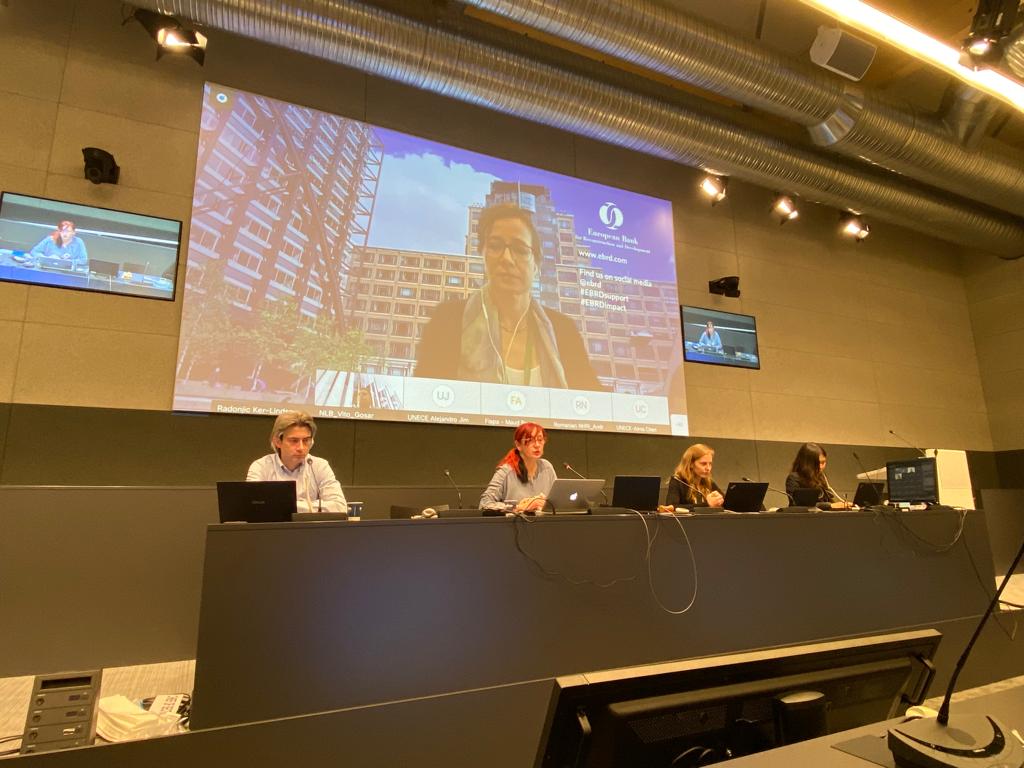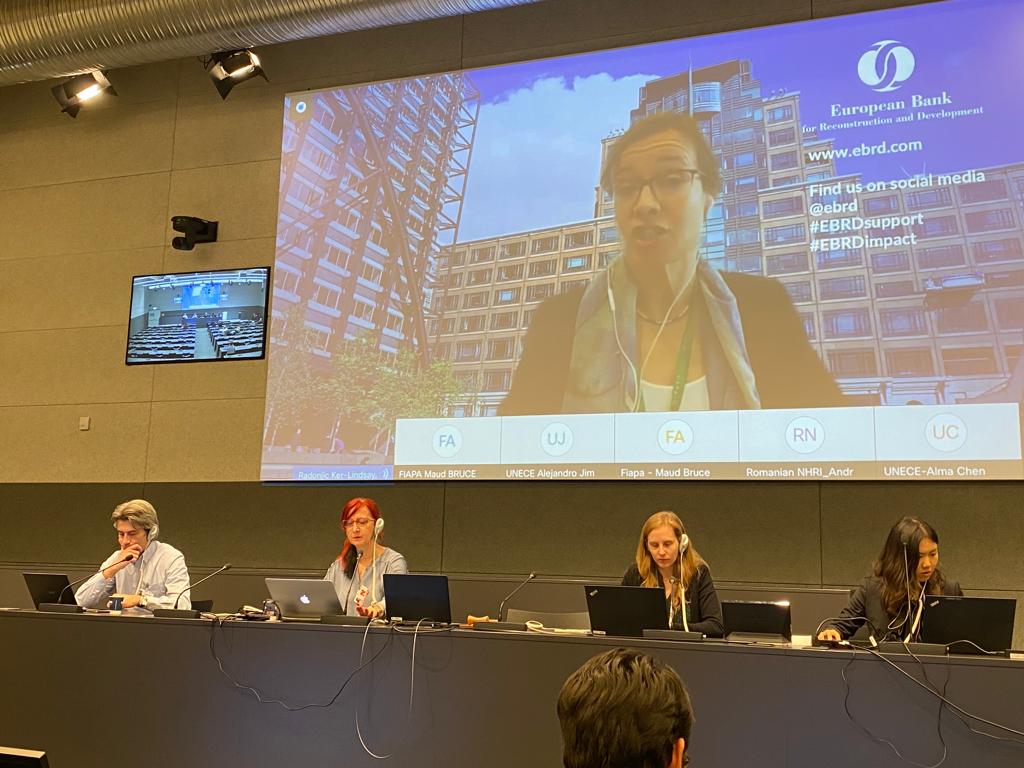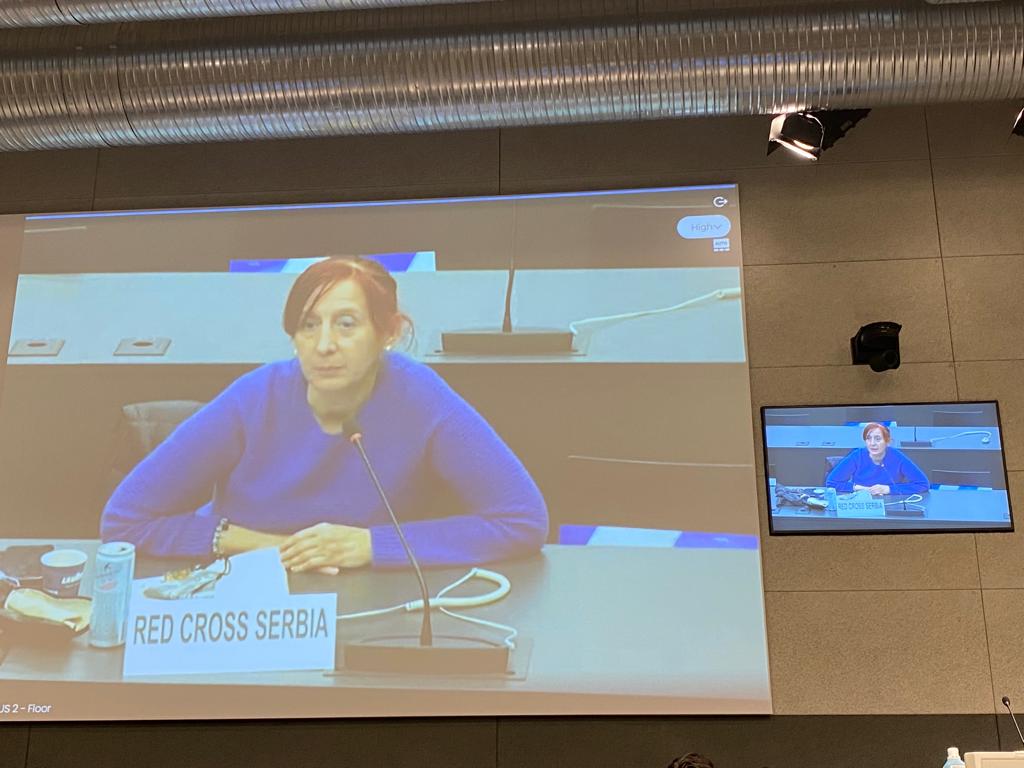- news
- working group on aging and the seminar "aging in the digital age" of the united nations economic commission for europe (unece)
Working Group on Aging and the seminar "Aging in the Digital Age" of the United Nations Economic Commission for Europe (UNECE)
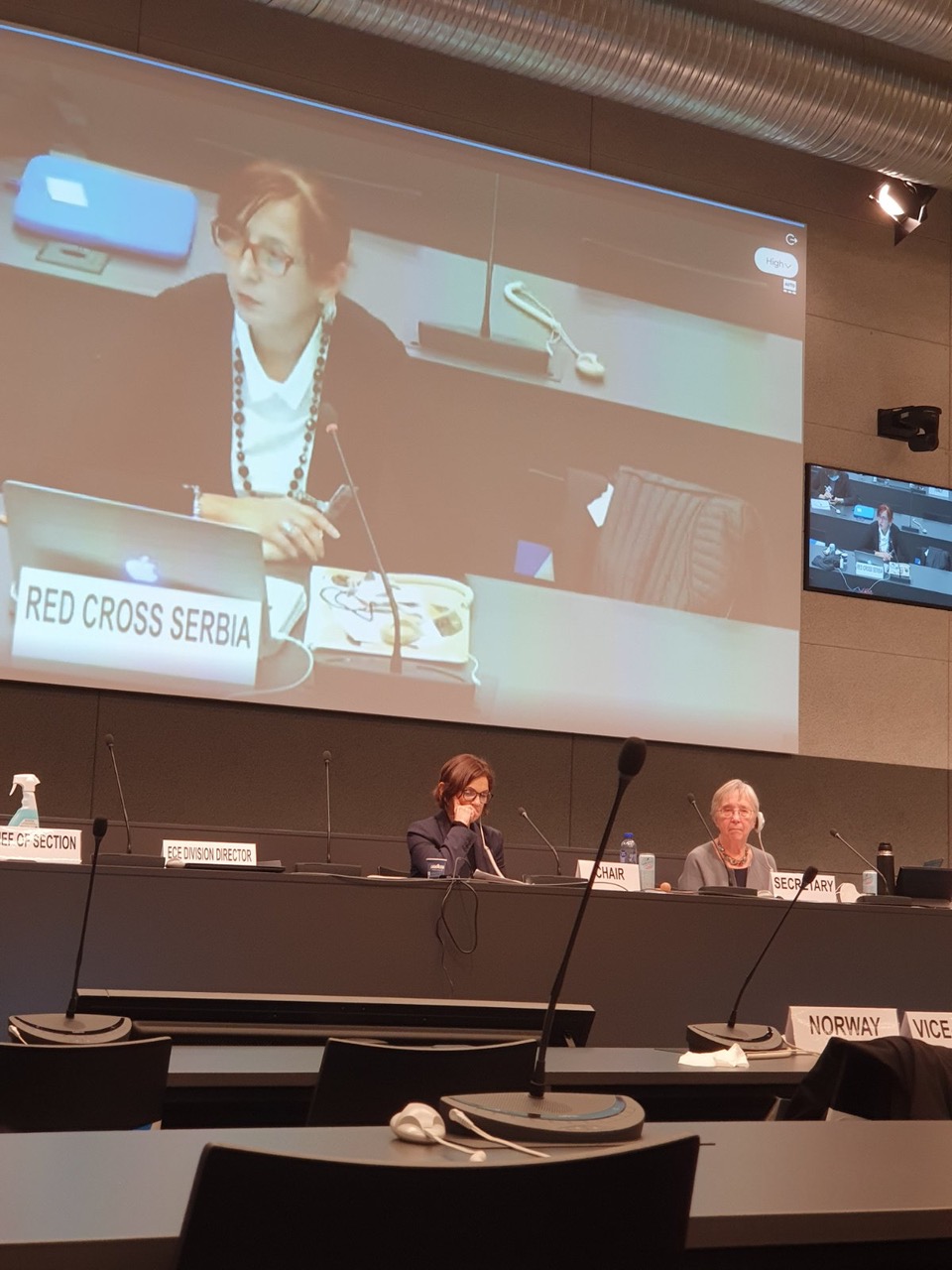
The fourteenth meeting of the Working Group on Aging of the United Nations Economic Commission for Europe (UNECE) was held in Geneva on November 22 and 23, 2021, with the participation of Serbian Red Cross representatives Natasa Todorovic and dr Milutin Vracevic. During the two days of the meeting, the representatives of the Serbian Red Cross took an active part in the part related to the writing of the five-year National Report on Aging. The United Nations Population Fund (UNFPA) and the Ministry of Labor, Employment, Veterans' Affairs and Social Affairs provided great support in writing the report. The bottom-up principle was used, which was the recommendation. Data were collected from relevant ministries, academia, independent bodies, the non-governmental sector, but also from the elderly in the part related to the preparations for the Ministerial Conference next year in Rome.
On the third day, November 24, a seminar "Aging in the digital era" was held, where representatives of the Serbian Red Cross participated in a panel and spoke about projects aimed at digital inclusion of the elderly. As part of this panel the Natasa Todorovic and dr Milutin Vracevic explained that given that we know that digitization can increase pre-existing inequalities included health, it will be made sure making sure that the education and coaching we do with older people is more focused on e-health so that we compensate the potential gaps and increasing inequalities.
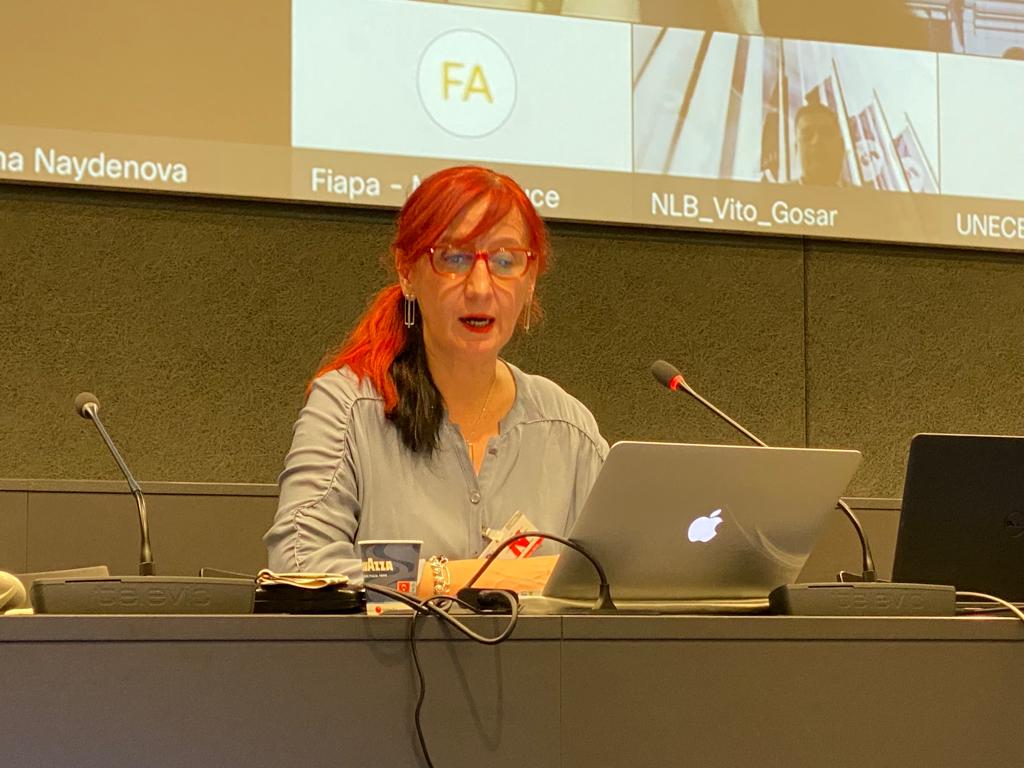
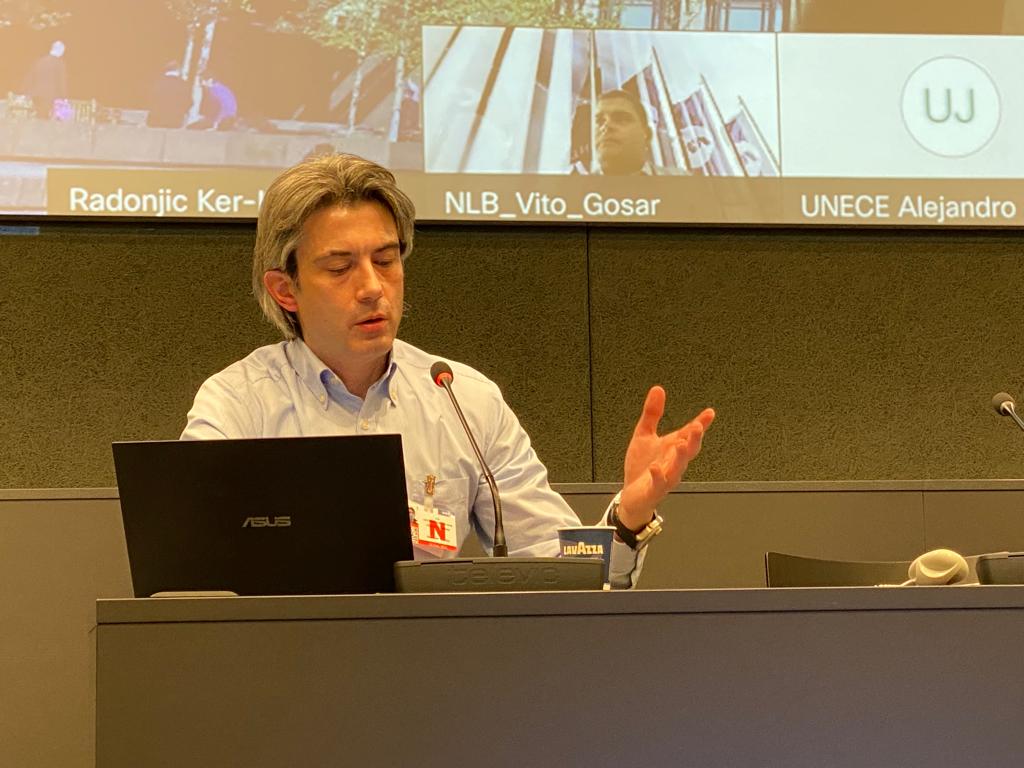
Before the current crisis that changed the world, the Red Cross of Serbia was already active in looking to bridge the digital divide. It was an issue putting older population at a disadvantage for many years already and the pandemic only made it more pronounced and painfully obvious. Thus, the interventions we implemented were done in several steps, starting before the COVID-19 outbreak and continuing as it developed.
The first step took place before the COVID-19 crisis and it was a 2019 project we were implementing with UNFPA support and in partnership with the Institute of Social Sciences entitled “Access of Older People to Information and Communication Technologies”. The publication “Ageing and Digital Inclusion – Baseline Study with Recommendations” was developed within the framework of the project, based on the study with 303 older persons from 29 Serbian municipalities. This additionally included four focus group interviews with 42 participants for the qualitative part of the research.
The data collected through the project was used to organise a round of training to create and test a guide for older persons on how to use the online e-governance services. In the course of the project we developed the guide step-by-step for older persons on how to use specific online services and we also trained older volunteers so that they could support and coach older persons. A step-by step guide for the use of selected e-services, developed in a previous project, is used to assist older persons in using the e-Government portal for the administration of personal documents, scheduling of appointments, medical drugs search, and review of court cases at the Portal of Serbian Courts as well as several popular e-banking applications in Serbia.
After the outbreak of COVID-19 crisis and the state of emergency was proclaimed, older persons were effectively confined to their homes. All this naturally moved us to the second step and we worked on a project Stronger and Connected with UNFPA support that was a follow-up to the previous project, focusing on increasing older persons’ digital skills.
Additionally, the coaching in this project included information and assistance in identifying and using trusted and reliable sources of information on the COVID-19 epidemic and the protection measures. Coaching is adapted to the needs and preferences of the older beneficiaries. Many older persons own smartphones that they bought themselves or their children got them one, but they were not educated in using them to their full capacity. During our intervention, we had UNFPA support to purchase tablet computers. Then, since we already had younger volunteers visiting older persons regularly to bring them food, medication and hygiene items, using protective equipment to ensure epidemiological safety, they also used the opportunity to educate these older persons on the spot on how to use their phones or how to seek support and help online. Later on this was expanded onto how to register for vaccination. Volunteers of the Red Cross in Serbia provide coaching and support for older persons via telephone, Skype, or other digital means. With passing months we have included older volunteers as well, so those with better grasp of online services or digital applications could assist their peers with overcoming obstacles and dilemmas remotely.
The issue of inclusion is very important, because in our research it was shown that 57% of older persons use computers, smart phones and the Internet, which means than more than 40% do not. 90% of those who do use internet, use it for reading news, games and entertainment. They do not use it for other things, specifically they rarely use it for online banking and similar services because it turns out going to the bank is a kind of a social activity for them. So we are trying to balance, to create smaller groups of digital technology users, to create Viber communities for those who have mastered these communication apps so that they can socialize in this way. We try to make them use telephones to talk in different ways, using different apps and discovering different topics to be explored with their peers. We make sure that in addition to younger volunteers who provide support and coaching, we include as many older volunteers as possible. This is effective both because they understand the obstacles their peers may be facing and because older persons are sometimes more likely to trust and listen to someone from their generation who demonstrates how to solve different issues.
Currently, in one of our projects implemented with EU support, we are starting with cognitive exercises for persons with diagnosed dementia. Here, we have volunteers who will regularly work with these persons, using tablet computers, on exercises that will strengthen their cognitive capacities, and monitor the onset of dementia.
